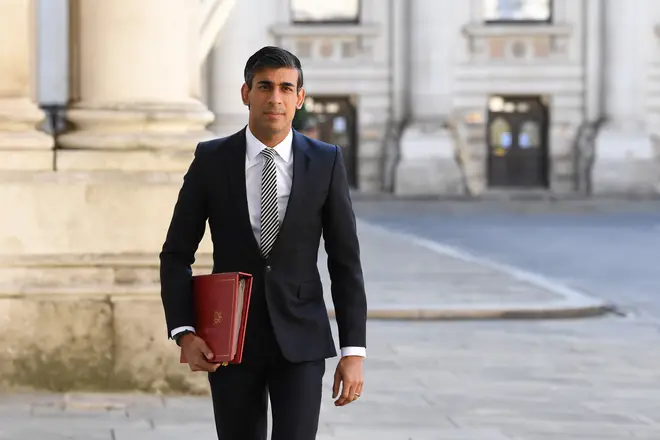
Tom Swarbrick 4pm - 7pm
23 September 2020, 16:58

The Government has been urged to continue the furlough scheme beyond the end of October in light of the new coronavirus restrictions.
But what is the scheme, when is it due to end, and what else can be done to help businesses and employees?
Read more: Boris faces calls to extend furlough beyond end of October
Read more: Over 6,000 new coronavirus cases recorded in 24 hours - highest since May
The furlough scheme has cost the Government £39.3 billion to date, with £3.9 billion between August 16 and September 20 alone, according to the latest figures.
More than £13 billion has been handed to firms and workers through five different Government support schemes in the last month.

Govt to introduce creative and imaginative schemes to help the economy
The furlough scheme is set to end on October 31.
Rishi Sunak will update the House of Commons on “our plans to continue protecting jobs through the winter” on Thursday.
As our response to coronavirus adapts, tomorrow afternoon I will update the House of Commons on our plans to continue protecting jobs through the winter. pic.twitter.com/eP6aqcocxd
— Rishi Sunak (@RishiSunak) September 23, 2020
Chancellor Rishi Sunak has pledged to be "creative" and is understood to be weighing up a number of possible measures to subsidise workers' wages, having consulted unions and business groups.
It is thought he postponed an announcement due on Wednesday to extend emergency loan schemes in favour of a bigger support package.
Mr Sunak has been urged to "get around the table" and fast-track new job support plans amid reports he is working on a new German-style scheme to avoid mass unemployment once furlough ends.
He is said to be weighing up a new scheme as part of a wider emergency support programme as pressure mounts on the Government to help businesses survive a second wave of coronavirus.
The mooted plans would reportedly see the Government and firms share the cost of topping up wages for employees only able to work part-time due to the pandemic.
Calls have ramped up for a new lifeline for firms after Boris Johnson announced six months of tougher restrictions that threaten the economic recovery, as fears also grow of mass unemployment once the furlough scheme ends.

The SNP call for an immediate extension to the furlough scheme
Boris Johnson has been urged to continue the furlough scheme beyond the end of October by Sir Keir Starmer in light of the new coronavirus restrictions.
Speaking at Prime Minister’s Questions on Wednesday, the Labour leader criticised the Prime Minister for phasing out the scheme, which ends at the end of next month, despite implementing new measures.
Sir Keir said “health measures and economic measures are now dangerously out of sync” and called on the Government to “support the businesses affected.”
SNP leader Ian Blackford also called for "an immediate extension, no half-measures" to the scheme.
He said “time is running out, workers are facing the dole today.”
Elsewhere, Bank of England governor Andrew Bailey said on Tuesday it was time to "stop and rethink" the furlough scheme in favour of a targeted approach.
The Trades Union Congress (TUC), which outlined its furlough replacement proposal last month, said the Government must "fast-track a new plan" to protect jobs.
TUC general secretary Frances O'Grady said: "We have published detailed proposals for a new short-time working and upskilling scheme.
"With the right approach we can stop mass unemployment scarring millions.
"My message to ministers is clear: let's get around the table and fast-track a new plan."

'10pm curfew will cripple the hospitality industry'
The TUC has proposed a scheme that would see workers receive 80% of their salary for the hours they are not in work.
Companies would get a 70% subsidy from the Government, provided they bring back every worker on the scheme for a minimum proportion of their normal working hours.
Another proposal put forward by the CBI business group would see subsidies for firms that can offer staff at last 50% of their normal hours, with the cost for non-working hours shared equally by the company, the Treasury and the employee.
One option reportedly being considered is a scheme similar to Germany's highly-praised Kurzarbeit, or shorter work-time policy, under which firms can radically cut working hours in economic downturns with the state replacing part of their lost income.
France’s scheme could last for up to two years, and pays 70 per cent of gross up to almost €7,000 per month. Firms can also claim just part of an employee’s salary.